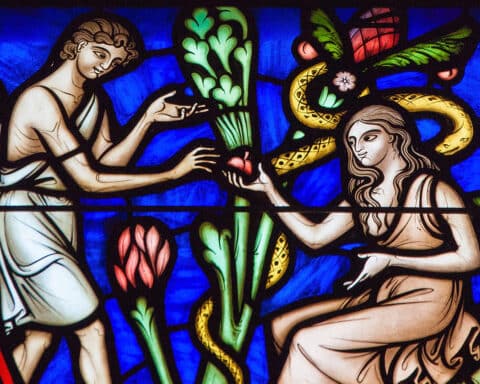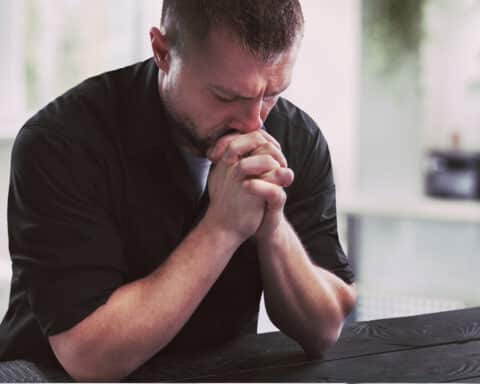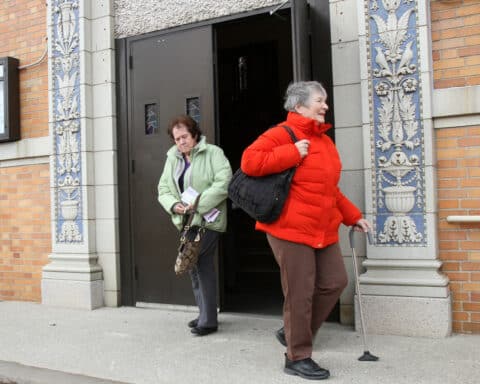(OSV News) — Sincerity is the life blood of a robust spiritual life. It’s one of those good habits I call “worldly virtues,” meaning virtues essential for living a good life in the middle of the world — in this case, by being honest about our weaknesses along with our strengths, our confusions along with our certainties.
But honest with whom? With God, obviously. With other people no doubt. But first, as the basis and starting-point for honesty with God and others, we have to be consistently sincere with ourselves.
That isn’t as easy as it sounds. Not everything that passes for sincerity is the genuine article.
Pope St. John Paul II got to the heart of the problem in its contemporary form in a 1993 encyclical, “Veritatis Splendor” (“The Splendor of Truth”). He wrote of “currents of modern thought” that consider a judgment regarding a moral question to be true “merely by the fact that it has its origin in conscience.”
Where that kind of thinking prevails, St. John Paul said, “sincerity, authenticity and ‘being at peace with oneself'” replace fidelity to objective truth.
He says that to have a “good conscience” — to be genuinely sincere — people “must seek the truth and must make judgments in accordance with that same truth” (“Veritatis Splendor,” No. 62).
Today, nevertheless, it’s widely supposed that in matters of morality there is no such thing as objective truth. There’s your truth and my truth and everybody else’s separate version of truth, and each one is as good as any other.
Instead of simplifying the quest for sincerity, this makes it nearly impossible to be sincere — honest with God, with other people, and with oneself. Seeking the truth and judging and acting in its light are difficult enough for imperfect people in a fallen world. Today’s moral relativism and subjectivism only make it harder.
There’s a powerful illustration of self-deception and its cure in a memorable short story called “Revelation” by the Catholic writer Flannery O’Connor.
The central character is Mrs. Turpin, a middle-aged farm woman who scorns poor whites, African Americans, and anyone else who doesn’t meet her personal standards. But one day a series of events shakes her complacency. At day’s end, Mrs. Turpin has a vision — “a vast horde of souls … rumbling toward heaven.”
Prominent in this multitude are “whole companies of white-trash,” crowds of Black people, and “battalions of freaks and lunatics.” Bringing up the rear is a cluster of upstanding personages very much like herself.
“They were marching behind the others with great dignity, accountable as they had always been for good order and common sense and respectable behavior. They alone were on key. Yet she could see by their shocked and altered faces that even their virtues were being burned away. She lowered her hands and gripped the rail of the hog pen, her eyes small but fixed unblinkingly on what lay ahead.”
Most of us won’t have our eyes opened to the truth about ourselves in a manner as dramatic as that. It will be an arduous, lifelong process. “We often do wrong, and what is worse, we excuse ourselves,” says “The Imitation of Christ.”
Sincerity is crucial to overcoming this tendency to self-deception. People serious about the spiritual life generally do try to be sincere, knowing that a famous passage in the first letter of St. John speaks the simple truth when it says, “If we say we have no sin, we deceive ourselves, and the truth is not in us.”
But if we face up to our sinfulness, the passage continues, God “will forgive our sins and cleanse us from all unrighteousness” (1 Jn 1:8-9).
God’s forgiveness waits on our acknowledgment of sin. That acknowledgment is a key part of being sincere.
Usually it isn’t difficult for good people to recognize the specific, concrete evil actions they perform. Sins like anger, stealing and lust are ordinarily hard to overlook.
But it’s different with sins of omission — the failures of love, honesty, compassion and generosity that easily escape our notice. For instance: a husband and father who’s consistently patient and kind with his wife and children but shortchanges them when it comes to giving them his time. He buries himself in unnecessary after-hours work (“That’s how you get ahead,” he rationalizes) along with frequent socializing with colleagues (“We need to relax once in a while”). The result is a persistent neglect of home and family obligations that he chooses to ignore.
This man needs to take an honest look at what he’s doing. Or, more precisely, not doing. He needs to be sincere with himself.
And how crucial that is! St. John Henry Newman in one of his homilies declares: “Without self-knowledge you have no root … you may endure for a time, but under affliction or persecution your faith will not last.”
This, he reasons, is why people become “infidels, heretics, schismatics, disloyal despisers of the church … .They endure not, because they never have tasted that the Lord is gracious; and they never have had experience of his power and love, because they have never known their own weakness and need.”
Examination of conscience and spiritual direction are the two principal means of acquiring sincerity. They are — or ought to be — key parts of the spiritual lives of all who aspire not just to be good enough to scrape by and make it into heaven after a long stay in purgatory, but to be true saints, as the Second Vatican Council said they should. Neither is intended only for a small number of elitists. Supposing otherwise is a serious, destructive and all-too-common mistake.
Examination of conscience is ordinarily a daily affair, a few minutes spent in prayerful review of the day’s successes and failures in the ascetical struggle, capped off with a concrete resolution for improvement. Daily examination is remote preparation for sacramental confession, which also should be part of the schedule — say, every two weeks. (Longer, more in-depth examination is appropriate on special occasions such as retreats and days of recollection.)
Spiritual direction also should be a regular exercise, perhaps once a month. The sessions needn’t be lengthy, but they should be honest and to the point: serious conversations with a reliable guide (a committed Christian, of course, who shares the same values and beliefs as oneself) that help us achieve a clearer picture of our spiritual selves than we’re likely to get alone. Direction doesn’t replace the sacrament of penance, but is complementary to it.
To get good results, we have to use the means.
Examination of conscience and spiritual direction are means to becoming and remaining sincere.





